Frederica Freyberg:
I’m Frederica Freyberg. Tonight on “Here and Now,” a first look at Governor Walker’s plan to close the Lincoln Hills juvenile facility. After that, a closer look at the science of this deep freeze. State Supreme Court candidate Rebecca Dallet is here. And an inside look at a complaint filed over the Madison DMV. It’s “Here and Now” for January 5.
Announcer:
Funding for “Here and Now” is provided, in part, by Friends of Wisconsin Public Television.
Frederica Freyberg:
In our first look tonight, Governor Scott Walker has announced plans to close Wisconsin's current juvenile correctional facilities and open regional facilities instead. Late this week, the governor said he would close Lincoln Hills and Copper Lake, establish five regional juvenile facilities across Wisconsin, make the juvenile prison an adult medium security institution and expand treatment services at Mendota Juvenile Treatment Center. The cost of building the new facilities would be roughly $80 million according to the governor’s office. This plan has been met with praise and criticism. Milwaukee’s State Senator Democrat Lena Taylor weighs in now with her reaction. Thanks very much for being here.
Lena Taylor:
Thank you for having me.
Frederica Freyberg:
What is your response to the governor’s call to close Lincoln Hills and Copper Lake?
Lena Taylor:
I mean, very candidly, it’s a day late and a dollar short. The governor had an opportunity to do something in his budget that shows that he wanted to prioritize stopping inhumane treatment of young people. He did not. He did not even bring us up to the minimum standards of what we needed to do. And a day — you know, a day late because the governor has known since at least 2012, I believe it was that the judge gave a letter to the governor telling him that there was a problem in the juvenile facilities. So, you know, am I glad that the governor realizes that he has messed up and his administration has badly managed the criminal justice system especially for juveniles? I am.
Frederica Freyberg:
Now, Milwaukee Democratic State Representative Evan Goyke is commending this move, calling it exciting progress in reforming Wisconsin’s correction system, and during a recent presentation introduced a bill which he says first produced many of the changes moving forward now. So certainly some people, including Democrats, are applauding this move. What about that?
Lena Taylor:
I think it really is not something that we should applaud. First of all, we’re going to do something. Why are we putting off today — putting it off to tomorrow what we can do today? And so I don’t find it exciting when we’re not addressing the issue that needs to be done right away, which is to give Milwaukee County authority in order to be able to have an institution that they can have there in Milwaukee County. And why must it be somewhere else other than Milwaukee County for the youth to be cared for? So if we were dealing with the issue immediately, I could give praise, Frederica. But that’s not what we’re doing. We’re putting it off until 2019 and we’re doing nothing right now.
Frederica Freyberg:
Now, I understand that the governor has said that he is open to moving that date up. So that’s something, perhaps, of some compromise that you can look to.
Lena Taylor:
That is possible, as well as the governor said he may close Lincoln Hills if you look at his press release completely. He does not say I shall. And then even more importantly, I think we need to do something immediately. Right now there are children there and they’re being harmed. And the conditions are such that individuals who are working, who are correctional officers, are not well-trained. They’re working hours that are unreasonable. It’s an unsafe environment for both workers and I would argue for individuals there.
Frederica Freyberg:
But if you were to immediately close these juvenile institutions, what would your answer — where would they go immediately?
Lena Taylor:
So the first thing I'm saying is not even necessarily a shutdown today immediately, but I'm saying you have to start with giving the county that most of the juveniles come from to at least have authority to be able to build the kind of facility that they need to house their young people. They’ve asked for it. Why can County Executive Abele’s request to be able to do that not be honored?
Frederica Freyberg:
Getting into that piece a little bit, we have not very much time left unfortunately but these five regional juvenile institutions that are proposed in this plan.
Lena Taylor:
Yes. Those five. Milwaukee could be one, but we still would have to have the authority to do that, of which the county executive has asked for since at least 2016 and has not gotten a response from the governor. I put it in a motion in the budget and it was not done. I do like the concept. This is the same thing that Representative Tamara Grigsby and I asked for years ago during the Finance Committee when we first said also that we should consider putting the juvenile facility back in DHS or in DCF. So I believe that there are some things the governor could do right away to begin to address the issue. I don’t believe putting it off to 2019 is something he should be applauded for. I think he could give Milwaukee County authority and most importantly he could do training and staffing to be able to help.
Frederica Freyberg:
All right. We need to leave it there. Senator Lena Taylor, thanks very much for joining us on this.
Lena Taylor:
Thank you for having me.
Frederica Freyberg:
We move now from state capitol politics to the race for state Supreme Court and our series of interviews with candidates running in the February primary. Candidate Tim Burns and candidate Michael Screnock have appeared in recent programs. Tonight we speak with Rebecca Dallet. Judge Dallet has presided as a Milwaukee County Judge since her election in 2008. Prior to that, she spent 11 years as an assistant district attorney in Milwaukee County. I spoke to Judge Dallet earlier. Judge Dallet, thanks very much for joining us.
Rebecca Dallet:
Thank you for having me.
Frederica Freyberg:
Well, first, of course, we just want to ask why are you running for Supreme Court justice?
Rebecca Dallet:
I'm running for Supreme Court justice, Frederica, because our rights are under attack, our civil rights. Every day, tweet by tweet. Our right to clean air and water. Our right to equal protection, women’s rights. And we’ve got a broken Supreme Court. And what we need is someone with experience and values to stand up and repair that court. I have been a judge for a decade, a prosecutor for more than a decade, really fighting for our rights in court. And I want to continue that fight on our Supreme Court.
Frederica Freyberg:
Why do you believe that you would be the best among the candidates?
Rebecca Dallet:
Well, I really do think it comes down to experience. I have been, as I said, a prosecutor. I prosecuted sexual predator cases in two counties. And now as a judge for almost a decade, I have heard 10,000 cases, 230 jury trials, experience that is really unparalleled between me and my opponents. And experience matters. I hear the day-to-day struggles Wisconsinites face. I see moms like me struggling to make ends meet, yet still losing their houses. I see communities ravaged by our opioid crisis, by gun violence. And I see our neighbors who are trying to get back on the right track, yet trapped in a criminal justice system that needs some reform. And this kind of experience matters. This is experience that matters in terms of protecting our values and in terms of advancing policies that will level the playing field.
Frederica Freyberg:
Now, Judge Screnock says that the role of the high court is to interpret and apply the law and not to, “legislate from the bench.” He tells me that you do not share that view. What is your view, your so-called judicial philosophy? One of activism to enact social or political change or one of restraint?
Rebecca Dallet:
Well, the job of a judge, as I do it every day, is to apply the law. Understanding that the law involves our constitution and also involves the rights that we all care about and the rights that make Wisconsin great and those are the things that I hold dear and will protect, as I have, for my service in our courts.
Frederica Freyberg:
Well, is that legislating from the bench, as Judge Screnock would suggest?
Rebecca Dallet:
Well, we have our roles as judges. We are not a legislature. But we also have a duty to uphold the Constitution of both the United States and Wisconsin. And when that Constitution has been violated, that’s when we are a check on those legislators.
Frederica Freyberg:
And so what’s your reaction to Judge Screnock saying that you do not share his view of this just interpreting and applying the law as written?
Rebecca Dallet:
Well, my response to that is that I — again, I go back to the experience that I have had every day in our courts. I have been working as a judge for almost a decade, which is a very long time, much longer than my one opponent who is not a judge and Judge Screnock, and really I know what it’s like every day to look at the facts, to apply the law and to reach decisions that are fair and just and to make sure that we have a level playing field for everyone in our state.
Frederica Freyberg:
Now, another of your challengers running for the seat openly brings his progressive politics to the race and says that it is a fairytale that Wisconsin justices are apolitical. What’s your response to that?
Rebecca Dallet:
I go back to the fact that the two things that matter in this race are values and experience. And I am the only candidate that has both of those. The values that we need to protect the things we hold dear, the things we — that we care about that make our state great and the experience to actually stand up and protect those rights.
Frederica Freyberg:
What's your position on whether Wisconsin justices should have to recuse themselves from cases involving those who give them money during campaigns?
Rebecca Dallet:
I feel very strongly that we need a strong recusal rule in our state. We need to be confident in our courts. The fact that millions of dollars were spent on buying a justice or justice in the past, where justices did then not recuse themselves when that money was sitting in front of them as a party in the case. That is a symptom of a broken system. And I feel strongly we should have a recusal rule in the state.
Frederica Freyberg:
So even though under current rules you would not be required to recuse, would you in those cases if someone came before you that had contributed to your campaign?
Rebecca Dallet:
Where there are massive amounts of money spent on a candidate, absolutely there should be recusal of that candidate to make sure that everyone understands that our courts are fair and places where people can get justice.
Frederica Freyberg:
So interestingly you said when there are massive amounts of money, which of course there’s been a lot of money in these court campaigns, but what’s the definition of that for you?
Rebecca Dallet:
Well, we need to have a hearing. That’s the first thing we need to do. And there was a petition put forward by judges to have a hearing in front of the Supreme Court to let’s talk about what that means, exactly what you’re asking. And instead of having a hearing, the Supreme Court refused to have a hearing and then the Supreme Court put those hearings in secret. And now those hearings, those rule hearings that used to be public are no longer public. So we’ve got to start by having a hearing. Let’s have input from the people in our community who care.
Frederica Freyberg:
Very quickly, lastly, which sitting Wisconsin Supreme Court justice do you most admire?
Rebecca Dallet:
I most admire Ann Walsh-Bradley. I admire her ability to make sure we keep the courts fair and just in upholding the law. And I admire her. I also want to add as well I've gotten great support from judges across the state, over 175 at this point, and I think that that is something that speaks highly to my being the most qualified for this position.
Frederica Freyberg:
Thank you very much.
Rebecca Dallet:
Thank you.
Frederica Freyberg:
The primary election for the state Supreme Court race is February 20. A January 19 deadline may force Congressional leaders to avert a government shutdown with a stop gap funding measure. Both sides met this week for budget talks with the White House. Following the meeting, Republican leaders and the president released a joint statement saying, in part, “It is important that we achieve a two-year agreement that funds our troops and provides for our national security and other critical functions of the federal government. It also remains important that members of Congress do not hold funding for our troops hostage for immigration policy.” For his part in Madison this week, Democratic U.S. Representative Mark Pocan expressed his dismay over the process and its prospects.
Mark Pocan:
We've got a lot of real work to do. Unfortunately, they’ve still allowed the Tea Party to have the keys to their Shriner car they seem to be driving around. Lately the defense hawks have been a problem because they’re trying to fully fund defense spending but not the rest of the spending. And of course, we’re not going to go for that as Democrats because all they’re going to do is trash spending that helps people in communities across the country.
Frederica Freyberg:
The U.S. House returns for its session next week. Bomb cyclone, polar vortex. It is freaking freezing outside. Tonight we take a closer look at the science behind this deep freeze. UW-Madison Professor of Atmospheric and Oceanic Sciences Jonathan Martin is here. Thanks very much for being here.
Jonathan Martin:
It's my pleasure.
Frederica Freyberg:
So exactly what is a bomb cyclone?
Jonathan Martin:
It is sort of a nerdy word that was coined maybe 40 or so years ago. Maybe even older than that by somebody. It got to be in general parlance around 1980 to explain or describe cyclones, mid-latitude storms that develop really rapidly. The way we measure their development is their minimum sea level pressure. So a bomb storm is one where the sea level pressure drops through the floor at a really rapid rate, 24 or so millibars in one day. And that represents about 2% of the total column atmospheric mass in one day disappears from that storm.
Frederica Freyberg:
How unusual is it?
Jonathan Martin:
We probably get about two dozen of those kinds of intensively — rapidly intensifying storms around the whole northern hemisphere each winter. So they’re not that unusual.
Frederica Freyberg:
And that’s what’s happening on the east coast?
Jonathan Martin:
That's exactly what happened on the east coast. This one was rather extreme in terms of how fast it developed. It might be — instead of one in two dozen, it may be one in five type of storm per winter. So it’s really an exceptional event.
Frederica Freyberg:
And that is expected to be followed by a polar vortex?
Jonathan Martin:
By very, very cold air. Polar vortex is a word that a few years ago got into the popular lexicon as a result of a cold winter. It’s a meteorological term that describes the tendency for circulation around the pole at very high altitudes, 10, 20 miles above the ground. So polar vortex now seems to mean cold air. On the west side of such an intense cyclone, where the circulation is counter-clockwise, you can’t help but drag colder air from higher latitudes down southward.
Frederica Freyberg:
That's what we’re in right now?
Jonathan Martin:
That’s exactly what we’re in.
Frederica Freyberg:
And the trajectory of that? Are we supposed to be in it for a while?
Jonathan Martin:
Few more days, I think. The extreme, waking up every morning to below zero temperatures, a few more days of that. And then we’ll get back a little bit to normal. There’s no way to tell whether we’ll see it again this winter, but we may.
Frederica Freyberg:
Why is it happening?
Jonathan Martin:
That is a great question. It’s the kind of question that gets answered in research that one does after the event occurs. So I’m currently beginning to think about answers to that question. One of the ingredients to get us really cold is a high amplitude flow. Very strong, north-south meanders of the atmospheric flow at all levels, including the jet stream. That’s at about six miles above the ground. That occurs every once in a while during the cold season, but it isn’t something that you can see coming 20 days in advance. We did know this cold snap was coming around Christmastime or even before that. So 10 days or so in advance, the forecasts were really good for prolonged cold snap in the eastern part of North America. But longer than that is a difficult task.
Frederica Freyberg:
Does this have anything to do with climate change?
Jonathan Martin:
My view on that is I'm rather skeptical that individual cold snaps like this one are directly related to the broad background warming that’s going on around the planet. And this is a difficult subject to sort of broach in some ways. There’s no doubt that such a thing is occurring. The planet is warming up at a very slow but steady rate and there are many ways to see that. Whether or not it’s cold in your backyard is not really discernably attributable to that change on a case-by-case basis. I think that’s safe to say for this one.
Frederica Freyberg:
What’s hard to understand is that as the globe heats up, we experience these kind of things like polar vortexes.
Jonathan Martin:
Right. Right. One of the interesting theories out there right now, we’re debating it, the community of scientists I'm involved in is debating this rather hotily. There are sometimes some pretty strong opinions out there on some of these issues. But one thing that may occur when the planet warms up, we know for sure the ice at high latitudes gets weaker and thinner. That might add some extra warming to the lower part of the atmosphere in late fall, early winter that wasn’t there 50 or 100 years ago. That might have a tendency to increase the frequency of some of these high amplitude flows, these strong north-south variations. If that’s the case, because it still gets cold at the North Pole. The sun is down for six months at the North Pole. You’re not going to change that. You’re still going to produce cold air up there. If you can tap it with one of these excursions pole-ward of the jet stream and drag it southward, as is happening right now, with greater frequency, then one might actually, somewhat paradoxically, in a warmer planet, if the amplitude of the jet stream is intensified because of that, I don’t think the evidence is in on that question but if that’s true, then we might have a higher frequency of some of these cold snaps. But there’s no way to tell where they’re going to hit. Right now it’s unusually warm in Russia. Moscow’s enjoying a really warm December and January. Of course it’s frigid over our part of the world.
Frederica Freyberg:
Jonathan Martin, thanks very much for your explanation.
Jonathan Martin:
You bet. Thank you.
Frederica Freyberg:
The state of Wisconsin’s decision to combine and relocate two Division of Motor Vehicles locations in Madison has sparked a federal civil rights complaint on the city’s part. In tonight’s inside look, why the DMV move has prompted the complaint, which states in part, “…the decision to combine and move the west side DMV service centers to an area that is relatively inaccessible by transit disparately impacts racial minority residents who rely primarily on transit to reach the DMV for services, including, for example, obtaining a driver’s license for the first time or obtaining a voter ID.” The current DMV main location is located on a busy bus route as is a renewal location. Both are to be combined at a farther out site, less accessible by bus. Here’s what Madison Mayor Paul Soglin had to say.
Paul Soglin:
We are hopeful that the U.S. Department of Transportation will recognize the failure of our state’s Department of Transportation and will step in and order changes to be made so that whether it is getting identification, whether it is getting a driver’s license or a license plate, we will see to it that all the people in our community can utilize government services for which they pay.
Frederica Freyberg:
The League of Women Voters also spoke out on the DMV move and the resulting complaint. President of the Dane County League Brook Soltvedt joins us next. But first, the State Department of Transportation offered this statement in declining our invitation to appear. “The Madison West DMV Service Center is a new, more spacious location with free parking close to the building entrance. Customers of the location will be served by bus routes, Madison Metro’s route 15 and route 73. Customers have multiple bus options to access either Madison West or East DMV offices.” Now to Brook Soltvedt. Thanks very much for being here.
Brook Soltvedt:
Thank you for inviting me.
Frederica Freyberg:
Describe why people taking the bus will have problems accessing that new location? Because, as we just heard from the DOT, they say there are two routes that serve it.
Brook Soltvedt:
Not that it is utterly inaccessible, but from most locations, the time that it would take you to get to this new location would be significantly increased and very often includes a lengthy distance that would have to be walked. The busiest bus route or most direct bus route only operates during the peak hours, so that if you could get there early in the morning, you might not transact your business in time to take that short route back. Same at the end of the day.
Frederica Freyberg:
Why was a complaint filed with the federal office of civil rights? Does it have to do with federal funding coming into Wisconsin?
Brook Soltvedt:
It does. I’m not a civil rights attorney, but my understanding is that it is the federal Department of Transportation that can control what the state does.
Frederica Freyberg:
Now, the complaint states that it’s unclear whether the Wisconsin DOT intentionally chose a less transit-friendly location. What’s your take?
Brook Soltvedt:
I have no idea. I don’t want to impugn anybody’s motives on this. But our concern is that very often the state in making decisions doesn’t consider the impact that it will have on our less well-situated citizens.
Frederica Freyberg:
Did this relocation surprise you and others?
Brook Soltvedt:
I learned about it in August when I read about it in the State Journal and that’s when our league started advocating on behalf of the people that we knew would be impacted.
Frederica Freyberg:
And have you heard from customers who use these DMV locations?
Brook Soltvedt:
No, because I don’t think it’s been really all that well-advertised. Until very recently there was nothing on their website. Unless you happened to see that article in the paper this summer, most people probably had no idea it was coming.
Frederica Freyberg:
And so when you learned of it in August and began advocating and kind of got more involved, what was your initial reaction to that relocation?
Brook Soltvedt:
The very first thing I thought of was what about all the people we know who need to get to the DMV to get an ID for voting. One of the things about the voter ID law that was passed recently is it’s one of the most stringent in the country. There are very few IDs that a citizen can use to vote. Almost all of them require going to the DMV. It equates your right to vote with the ability to get to a DMV. So when you then make getting to the DMV more inaccessible to the very people who have — are least likely to have a driver license or voter ID or Wisconsin ID card, it’s a big problem.
Frederica Freyberg:
Has there been any preliminary reaction to your knowledge from the feds concerning this complaint?
Brook Soltvedt:
It was just filed two days ago, so as far as I know there’s been no response.
Frederica Freyberg:
Do you know whether or not there’s any kind of precedent for this kind of complaint calling for states or the feds to kind of not make these relocations?
Brook Soltvedt:
Yes. In Alabama in fact, I believe it was several years ago, maybe 2015, Alabama set about — after passing a very stringent voter ID law, went about systematically closing all the DMV offices in the predominantly black counties. But they left them in the predominantly white counties. And a civil rights complaint was filed and they were forced to reopen DMV facilities.
Frederica Freyberg:
Is there any sense that there will be kind of a different reaction under a different federal administration?
Brook Soltvedt:
I can’t say that. I don’t know.
Frederica Freyberg:
And so the best outcome in your mind would be?
Brook Soltvedt:
I would like to see the DMV open another service office similar to what we currently have on Odana road that would be open more accessible hours as that one is. That’s another issue that wasn’t addressed in this complaint, is the fact that that Odana road office has later hours in the evening and is open most of the day on Saturday. Something that would be accessible to voters, low-income, racial minority, transit-dependent voters, to be able to get services, including voter ID.
Frederica Freyberg:
All right. We need to leave it there. Brook Soltvedt, thanks very much.
Brook Soltvedt:
Thank you very much for your interest.
Frederica Freyberg:
That is all for tonight’s program. I’m Frederica Freyberg. Have a great weekend.
Announcer:
Funding for “Here and Now” is provided, in part, by Friends of Wisconsin Public Television.
Search Episodes
Related Stories from PBS Wisconsin's Blog

Donate to sign up. Activate and sign in to Passport. It's that easy to help PBS Wisconsin serve your community through media that educates, inspires, and entertains.
Make your membership gift today
Only for new users: Activate Passport using your code or email address
Already a member?
Look up my account
Need some help? Go to FAQ or visit PBS Passport Help
Need help accessing PBS Wisconsin anywhere?

Online Access | Platform & Device Access | Cable or Satellite Access | Over-The-Air Access
Visit Access Guide
Need help accessing PBS Wisconsin anywhere?

Visit Our
Live TV Access Guide
Online AccessPlatform & Device Access
Cable or Satellite Access
Over-The-Air Access
Visit Access Guide
 Passport
Passport





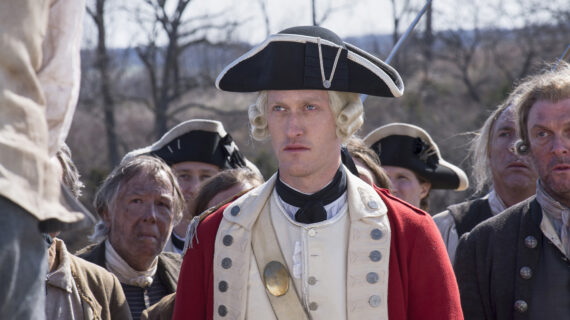
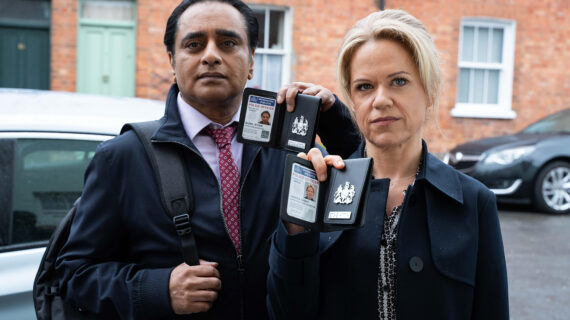
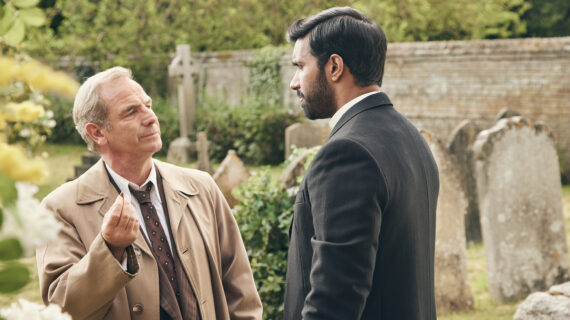
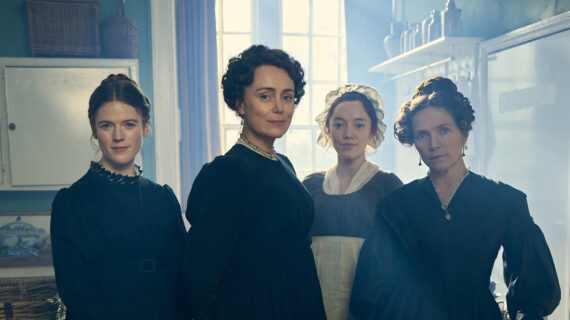

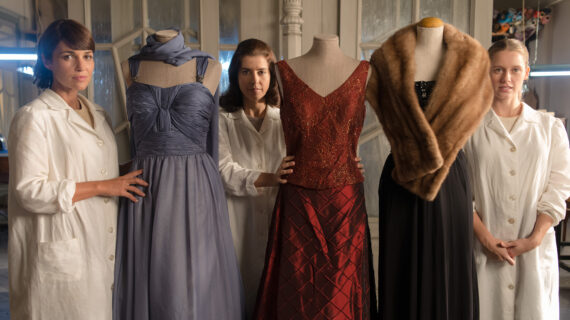
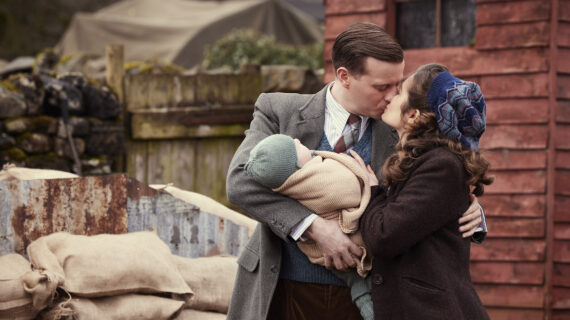

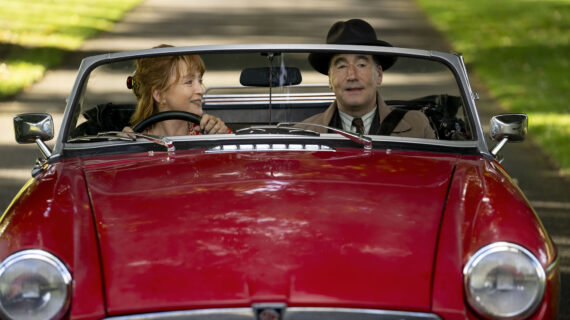
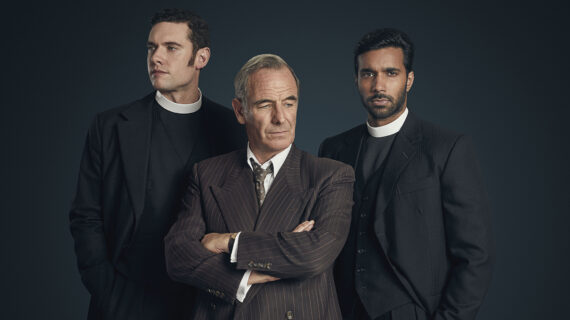
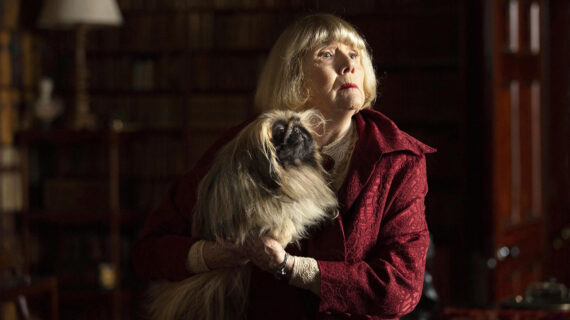

Follow Us